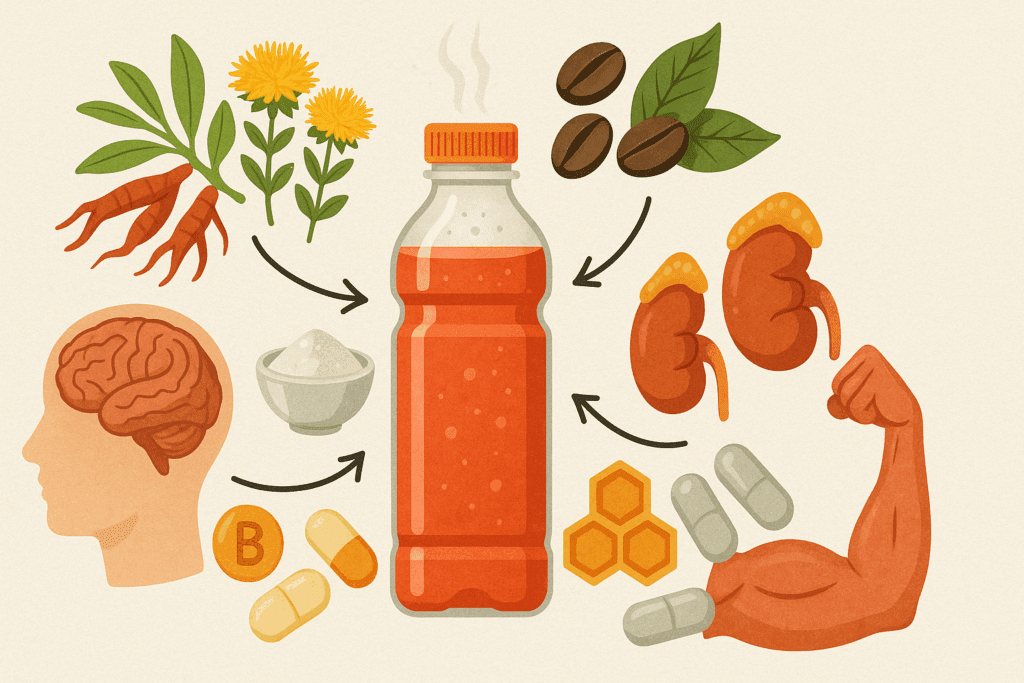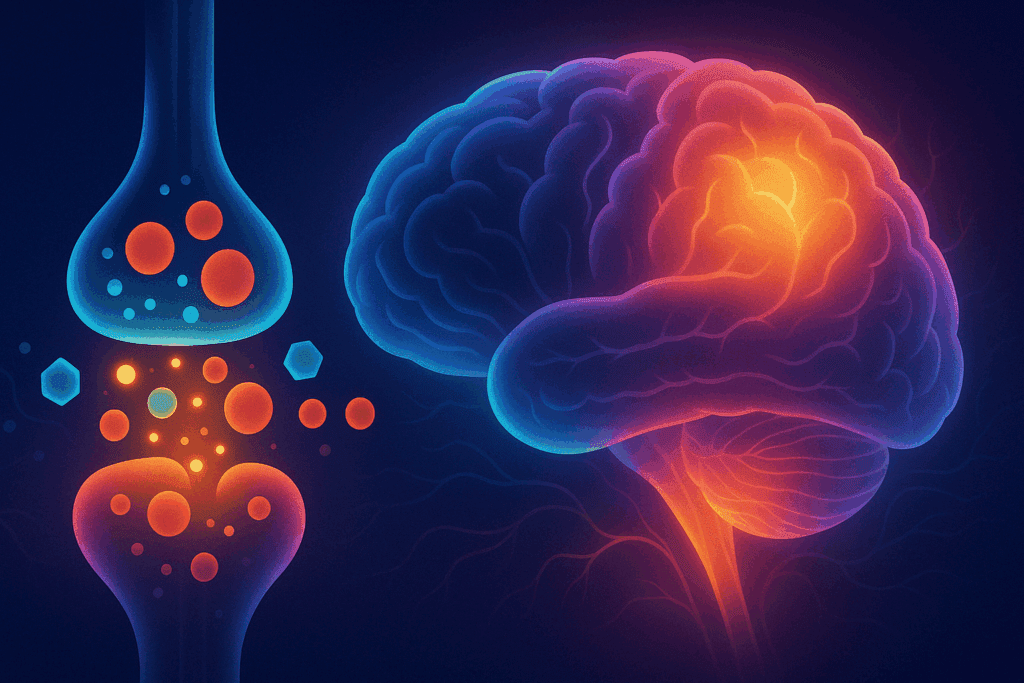The Rise of Power Drinks in Modern Energy Culture
In a society driven by productivity, stimulation, and mental sharpness, the demand for quick energy solutions has never been higher. From college students managing late-night study marathons to professionals powering through back-to-back meetings, energy drinks have become a cultural staple. Often marketed as convenient boosters for alertness, endurance, and focus, these beverages dominate convenience store shelves and online wellness platforms alike. But with so many brands and formulas making bold claims, choosing a power drink that actually works—and works safely—requires more than reading flashy labels.
You may also like: Best Herbal Stimulants for Energy and Focus: Natural Uppers That Work Without Caffeine
The term “power drink” has become synonymous with a new generation of energy-enhancing beverages designed not just to provide a jolt of caffeine, but to support sustained cognitive function and focus. These drinks often blend amino acids, B vitamins, herbal nootropics, and electrolytes, suggesting that energy is no longer just about stimulation—it’s about holistic brain performance. But what truly sets one energy drink apart from another in terms of effectiveness? And more importantly, how do we separate clever marketing from real results?
Understanding what goes into these beverages and how their ingredients interact with your body and brain is essential for making informed choices. When evaluating your options, you need to look beyond short-lived buzzwords and explore how these products influence neurotransmitters, metabolic function, hydration, and even stress resilience. Ultimately, the best power drink isn’t just the one that gives you a quick lift—it’s the one that enhances your energy naturally, supports mental clarity, and avoids the dreaded crash.

What Defines a Quality Power Drink?
The term “power drink” is often used interchangeably with energy drink, but not all products in this category are created equal. While the average energy drink may focus primarily on caffeine and sugar to deliver stimulation, a quality power drink incorporates a more nuanced formulation. The goal is not simply to wake you up, but to help you stay awake with purpose. That means the inclusion of ingredients that target multiple biological systems: the nervous system, adrenal function, cognitive processing, and cellular metabolism.
Caffeine may still be the core driver in many of these drinks, but it’s often paired with compounds that modulate its effects—like L-theanine, an amino acid shown to smooth out the jittery stimulation caffeine can cause. The most effective drinks balance these ingredients in a way that extends energy output without exhausting the nervous system. This balance is crucial when you’re relying on a beverage to help you power through a mentally demanding day.
Furthermore, the best power drinks for focus don’t overload your body with sugar or synthetic additives. Instead, they feature adaptogens like rhodiola or ashwagandha, which help the body cope with stress, or nootropic compounds such as citicoline or acetyl-L-carnitine, which support mental clarity. Electrolytes may also be included, especially in beverages intended for physical exertion, as hydration plays a key role in sustaining cognitive and physical performance.
In essence, a high-quality power drink does more than spike your energy—it enhances your ability to think clearly, stay alert, and maintain stamina. That distinction matters, especially if you’re using these beverages regularly to support work, workouts, or study sessions.
How Caffeine Affects Energy, Focus, and Brain Chemistry
Caffeine is the most widely used psychoactive substance in the world, and it plays a central role in most power drink formulations. It works primarily by blocking adenosine receptors in the brain. Adenosine is a neurotransmitter responsible for promoting relaxation and drowsiness; when caffeine prevents it from binding to its receptors, the result is increased alertness and wakefulness. This mechanism is simple but powerful, and it explains why caffeine is such a reliable energy booster for so many people.
However, the benefits of caffeine extend beyond just keeping you awake. It can improve reaction time, vigilance, and even short-term memory. These cognitive enhancements make caffeine one of the most researched and reliable ingredients for energy and focus. But dosage matters. Consuming too much caffeine can lead to side effects like irritability, anxiety, elevated heart rate, and eventual energy crashes once its effects wear off. The ideal amount varies between individuals, depending on genetics, tolerance, and other lifestyle factors.
What many people overlook is how caffeine interacts with other compounds in a power drink. When paired with L-theanine, for instance, caffeine’s stimulating effect becomes more focused and less edgy. This combination is particularly effective for people who want the benefits of heightened alertness without the overstimulation that can derail focus. Some of the best power drink options on the market take advantage of this synergy by carefully calibrating their ingredient ratios.
It’s also important to consider how long caffeine stays in your system. Its half-life ranges from three to seven hours, depending on factors like liver function, age, and hormonal influences. That means a single can of an energy drink consumed in the late afternoon could impact your sleep quality if the caffeine hasn’t cleared your system. For those who are sensitive to sleep disruption, choosing a power drink with moderate caffeine and complementary calming ingredients may be the smarter path.

Frequently Asked Questions (FAQ): Power Drinks and Energy Drink Use for Focus and Wakefulness
1. How do energy drink ingredients affect your body’s circadian rhythm over time?
While energy drinks are commonly consumed for short-term stimulation, consistent use—especially late in the day—can disrupt your natural circadian rhythm. Ingredients like caffeine and guarana may interfere with melatonin secretion, delaying your ability to fall asleep and reducing the quality of your REM cycles. Over time, this sleep disruption may reduce the effectiveness of the drink itself, as your body becomes chronically under-rested. To avoid this cycle, many experts recommend limiting any energy drink to morning or early afternoon use, especially when stacking it with other nootropics. For those sensitive to stimulants, a decaffeinated power drink with adaptogens or amino acids may provide an alternative route to wakefulness without compromising sleep architecture.
2. Can energy drinks and power drinks impact emotional regulation or mental health?
Yes, chronic consumption of highly caffeinated energy drinks has been associated with increased risk of mood instability, irritability, and even anxiety disorders, especially among younger adults. While a power drink may provide a temporary sense of focus, overstimulation of the central nervous system can sometimes amplify stress responses. In high doses, ingredients like taurine and caffeine may alter dopamine signaling, influencing motivation and reward perception. For those with underlying mental health conditions, it’s crucial to choose formulas that support mood without triggering overstimulation—look for options with L-theanine or magnesium, which can buffer excitability. Moderation and ingredient transparency are key for maintaining both focus and emotional resilience.
3. What are some lesser-known adaptogens that can be used in a power drink to support natural energy?
While ginseng and rhodiola are well-known, newer research highlights promising adaptogens like eleuthero (Siberian ginseng), schisandra berry, and astragalus. These botanicals have been studied for their role in improving endurance, reducing mental fatigue, and stabilizing stress hormone levels. When added to a power drink, they may offer a more balanced and sustainable uplift without the jitteriness associated with synthetic stimulants. Their mechanisms often involve modulating the hypothalamic-pituitary-adrenal (HPA) axis, which plays a key role in energy metabolism and alertness. Including these herbs in rotation or as part of a nootropic stack could enhance long-term energy and focus naturally.
4. How does the method of delivery—liquid vs. powder—affect the efficacy of an energy drink?
Powder-based energy drinks can offer greater bioavailability for certain nutrients, especially water-soluble vitamins and electrolytes, since they are often consumed with a full serving of water. Additionally, powder drinks tend to allow for more customizable dosing and often contain fewer preservatives or sugars than canned alternatives. On the other hand, ready-to-drink energy beverages may use rapid absorption compounds like caffeine anhydrous or citrulline malate, which provide a quicker onset of action. Choosing between a powder or liquid energy drink depends on your timing needs—pre-workout demands faster action, while sustained focus might benefit from a slow-release powdered formula. Both forms can be effective, but the context of use and ingredient quality matter most.

5. What long-term effects should users be aware of when consuming energy drinks regularly for cognitive focus?
One overlooked consequence of chronic energy drink use is adrenal fatigue-like symptoms, where the body becomes less responsive to stimulants over time due to prolonged stress hormone elevation. Additionally, overreliance on a power drink can create psychological dependency, where users feel mentally “flat” without a boost. Nutrient depletion—especially of B-vitamins, magnesium, and electrolytes—is another concern, as some ingredients increase urinary excretion of essential micronutrients. To mitigate these effects, rotate stimulant-free days, use drinks with supportive ingredients like CoQ10 or NADH, and periodically test your nutrient status. A well-formulated power drink should support cellular health, not drain it.
6. Are there specific populations who should avoid or limit energy drink use, even if they’re healthy?
Yes, certain populations should be cautious. Adolescents and young adults are particularly vulnerable to the cardiovascular and neurological effects of high-stimulant energy drinks due to their still-developing systems. Pregnant individuals, those with hypertension, and people prone to migraines or arrhythmias should also approach power drinks with care. Even healthy individuals who take stimulant-based ADHD medications should monitor for synergistic effects when using an energy drink, as this combination can elevate heart rate and blood pressure. Consulting a healthcare provider before combining medications with a power drink can prevent potentially dangerous interactions and promote more targeted supplementation.
7. How do nootropic-enhanced power drinks compare to traditional energy drinks?
Nootropic power drinks typically incorporate cognitive enhancers like alpha-GPC, L-tyrosine, or CDP-choline alongside milder stimulants. Unlike traditional energy drinks that focus on sheer stimulation, nootropic drinks aim for balanced cognitive support—enhancing memory, reaction time, and motivation without overstimulation. This makes them more suitable for tasks requiring mental clarity rather than just physical energy. A power drink with nootropics is especially useful for professionals, students, or gamers who need prolonged mental endurance rather than a quick burst of energy. Over time, users often report improved focus consistency and fewer crashes compared to sugar-laden energy drink options.
8. What role does hydration play in the effectiveness of energy drinks?
Dehydration can significantly blunt the benefits of any energy drink, reducing both physical and cognitive performance. Many power drinks contain dehydrating agents like caffeine and sodium, which increase urinary output. If not paired with adequate water intake, users may experience dizziness, headaches, or reduced concentration—ironically undermining the drink’s purpose. Choosing an energy drink with built-in electrolytes, or following it with a glass of water, can improve bioavailability and offset diuretic effects. Hydration acts as a performance multiplier, enhancing the delivery and uptake of nutrients and increasing the overall efficacy of your power drink regimen.
9. How is the market evolving in terms of healthy power drink innovations?
The latest trends in the power drink space include the rise of adaptogen-infused beverages, ketone-based fuels, and mitochondrial support formulas. Brands are increasingly turning to clean-label, vegan, and non-GMO certifications to meet demand for transparency and health consciousness. There’s also growth in “smart hydration” drinks that blend nootropics with electrolytes and brain-boosting botanicals, designed to support energy and cognitive function simultaneously. Functional energy drinks now often come with clinical doses of ingredients like lion’s mane or phosphatidylserine, which were previously limited to supplement capsules. This convergence of nootropics, hydration science, and metabolic health represents a major step forward for the power drink industry.
10. What’s the safest way to integrate energy drinks into a healthy lifestyle?
To safely use energy drinks, prioritize moderation, ingredient quality, and timing. Avoid relying on a power drink as your only source of focus or motivation—instead, use it to enhance well-established routines like sleep, exercise, and nutrient-dense meals. Cycling your usage (e.g., 5 days on, 2 days off) helps prevent tolerance buildup and adrenal burnout. Combine with adaptogens and calming nootropics if you’re prone to overstimulation. Most importantly, choose products that list full dosages and avoid proprietary blends, so you know exactly what you’re consuming. A power drink should be a tool—not a crutch—in your cognitive and physical performance strategy.

Nootropic Ingredients That Enhance the Power Drink Experience
In recent years, the power drink market has begun to incorporate nootropic ingredients—compounds known to support cognitive function without overstimulation. These additions reflect a shift toward beverages that do more than just energize the body—they aim to optimize the mind. One of the most promising additions is citicoline, a compound that supports the production of acetylcholine, a neurotransmitter essential for memory and mental clarity. Clinical research shows that citicoline can improve focus, reaction speed, and working memory, making it a standout ingredient for any energy-enhancing formula.
Another notable nootropic used in advanced power drink options is acetyl-L-carnitine (ALCAR). This amino acid supports mitochondrial function and helps transport fatty acids into cells for energy production. By promoting cellular energy metabolism, ALCAR doesn’t just give you a temporary lift—it contributes to long-term energy support and brain health. Many athletes and high-performance professionals find this combination particularly effective for maintaining clarity and endurance throughout the day.
Tyrosine is another cognitive enhancer frequently featured in modern power drinks. As a precursor to dopamine, norepinephrine, and epinephrine, it plays a key role in maintaining alertness, especially under stress. Whether you’re navigating a high-stakes presentation or enduring an intense workout, tyrosine may help you maintain cognitive performance when it matters most.
Some power drink brands are even beginning to incorporate adaptogenic herbs like rhodiola rosea and panax ginseng. These ingredients help the body adapt to stress and have been linked to improved mood, focus, and fatigue resistance. Unlike traditional stimulants, adaptogens support energy indirectly by improving the body’s ability to maintain balance and resilience.
This trend toward nootropic-enhanced energy drinks reflects a broader movement in wellness: the idea that true energy comes not just from stimulation, but from supporting the body’s natural systems. As this concept gains traction, the best power drinks on the market are evolving to meet higher standards of effectiveness and safety.
natural energy boosters, caffeine-free focus drinks, herbal energy supplements, brain-boosting beverages, stimulant-free alertness, adaptogenic drinks for energy, healthy focus enhancers, clean energy formulas, mental clarity drinks, wakefulness without caffeine, plant-based nootropics, energy powders for productivity, low-stimulant energy support, energy and mood drinks, gut-friendly energy ingredients, cognitive support beverages, energy drinks for brain health, sustainable energy sources, non-caffeine stimulants, holistic focus solutions
Was this article helpful? Don’t let it stop with you. Share it right now with someone who needs to see it—whether it’s a friend, a colleague, or your whole network. And if staying ahead on this topic matters to you, subscribe to this publication for the most up-to-date information. You’ll get the latest insights delivered straight to you—no searching, no missing out.
Further Reading:
Are Energy Drinks Good or Bad for You?
We Tried 29 Popular Energy Drinks. Here’s How They Rank
The 8 Best Natural Energy Drinks, According to a Dietitian
.Important Note: The information contained in this article is for general informational purposes only, and should not be construed as health or medical advice, nor is it intended to diagnose, prevent, treat, or cure any disease or health condition. Before embarking on any diet, fitness regimen, or program of nutritional supplementation, it is advisable to consult your healthcare professional in order to determine its safety and probable efficacy in terms of your individual state of health.
Regarding Nutritional Supplements Or Other Non-Prescription Health Products: If any nutritional supplements or other non-prescription health products are mentioned in the foregoing article, any claims or statements made about them have not been evaluated by the U.S. Food and Drug Administration, and such nutritional supplements or other health products are not intended to diagnose, treat, cure, or prevent any disease.


